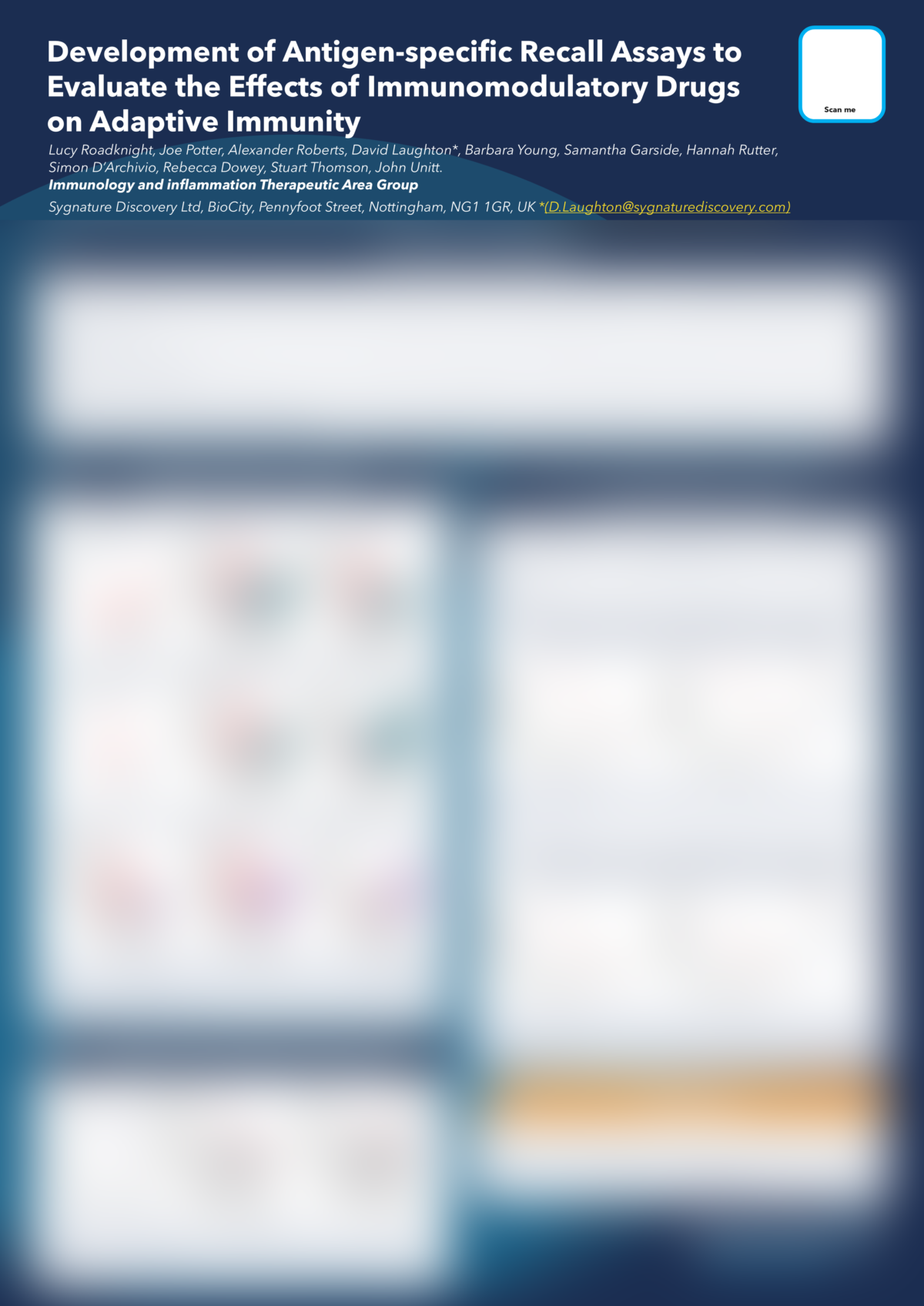Development of Antigen-specific Recall Assays to Evaluate the Effects of Immunomodulatory Drugs on Adaptive Immunity
The antigen recall response is an antigen-specific T-cell response to previously encountered antigens. T cells are fundamental to the adaptive immune response and coordinate proliferation responses, cytokine release and activation of other T and B cells in response to foreign antigen detection. In reflecting the memory and activation potential of T cells and other immune components, antigen recall assays provide insights into the efficacy and mechanism of action of immunomodulatory drug candidates.
Here, we develop in vitro proliferation, activation and cytokine assays to study T cell activity within the antigen recall response using two commonly utilised antigens: tetanus toxin and house dust mite. Further, the impact of anti-inflammatory compounds cyclosporine and dexamethasone upon antigen-elicited T-cell activation was assessed. These assays complement in vivo models, including the 2,4-dinitrofluorobenzene (DNFB) delayed-type hypersensitivity (DTH) model, which has also been established at Sygnature.
Following stimulation with both tetanus toxin and house dust mite antigens, there was a clear increase in CD4+ T cell proliferation and T cell-activated marker expression (CD25) as analysed by Flow Cytometry. Similarly, increased levels of IFNγ were detected in supernatants from antigen-stimulated cells compared to unstimulated cells. Antigen effects on both naïve (CD45RA+) and memory (CD45RO+) T cell subsets were evaluated, with memory T cells demonstrating greater activation following antigen stimulation compared to naïve T cells. The immunosuppressive drugs dexamethasone and cyclosporine strongly reduced T cell activation marker expression, T cell proliferation and IFNγ production.
We have established in vitro proliferation assays measuring T cell antigen recall activity to replicate and explore adaptive immune responses. Known immunomodulatory compounds were demonstrated to affect these responses, validating this assay for the identification and characterisation of novel therapeutic compounds that target T-cell function to treat a range of autoimmune diseases.

